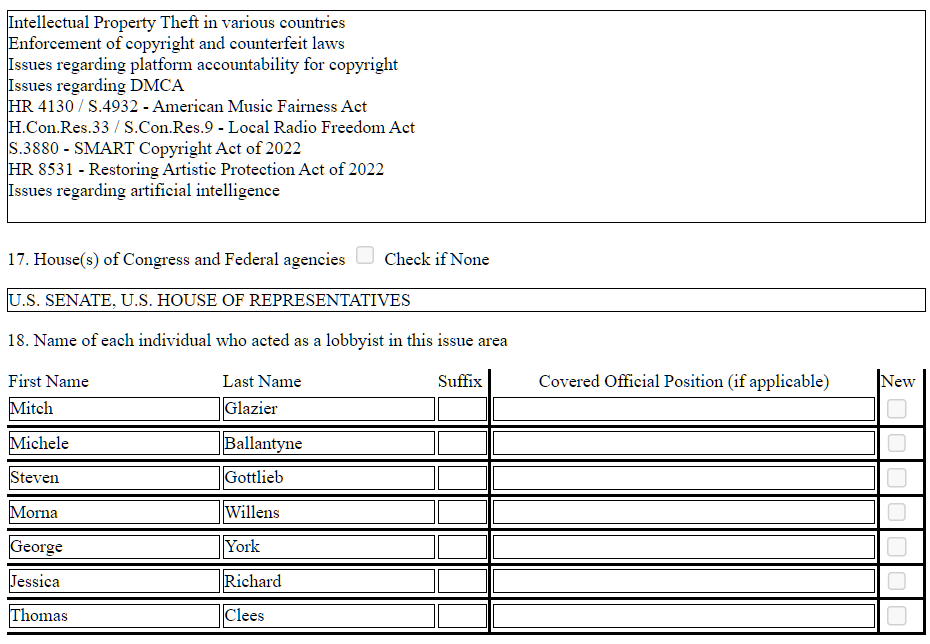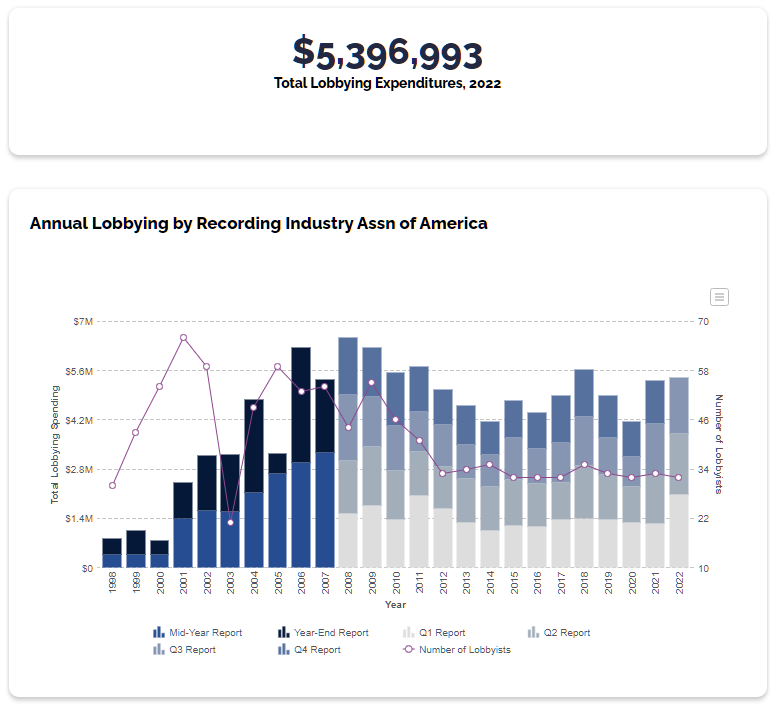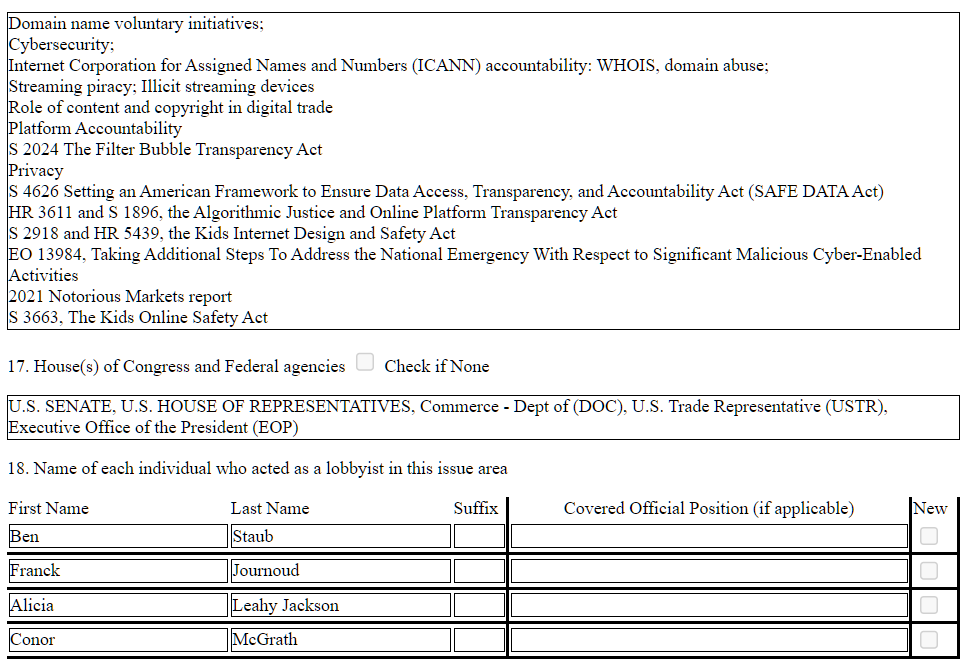 A quote attributed to former UK Prime Minister Winston Churchill suggests that democracy is actually the worst form of government – except for all the others.
A quote attributed to former UK Prime Minister Winston Churchill suggests that democracy is actually the worst form of government – except for all the others.
It’s a depressing take on the political gold standard, but the full quote adds more nuance. Churchill said that when the people elect ministers and express their needs to them, those in power are shaped, guided, and controlled as servants of the people – not their masters.
People in the multi-billion dollar lobbying industry couldn’t agree more.
Down the Lobbying Rabbit Hole
At this very moment, a GoFundMe campaign launched by the Concept Art Association has the primary goal of raising $270,000. The campaign hopes to pay a lobbyist $187,500 to “educate government officials and policymakers” on a new threat to the creative industries – AI-generated artwork.
At the time of writing, the campaign has raised $203,300, enough to retain a lobbyist for a whole year. The Concept Art Association says that some of the money will go to the Copyright Alliance, which already lobbies the government on behalf of its own members. Some recently expressed concerns that AI-generated works collide with copyright law.
RIAA Lobbying – AI, DMCA, Piracy and Beyond
Other members of the Copyright Alliance include the RIAA, which recently reported several AI-music mixing platforms to the United States Trade Representative, hoping to have them listed as upcoming threats in the USTR’s ‘Notorious Markets’ report.
According to a 2022 lobbying disclosure report, RIAA lobbyists raised AI as an issue with the government. Other issues included the Notorious Markets report, intellectual property ‘theft’ in general, enforcement of IP law, issues related to the DMCA, and proposals related to technical measures, aka content filtering.

According to OpenSecrets data covering the period January 2022 to end September 2022, the RIAA appeared in 15 government lobbying reports with a total declared lobbying expenditure (covered by its associates) of almost $5.4 million.
The last time the RIAA spent more was back in 2018, and before that, 2011.

Pfizer (17), Intel (18), and Comcast (18) appeared in more copyright, patent and trademark-related lobbying reports than the RIAA. None could match the 24 reports that pushed PhRMA, the Pharmaceutical Research & Manufacturers of America, to the top of the lobbying list, but in third place overall, the MPA wasn’t too far away.
MPA Lobbying – From Copyright to Z
According to reports compiled by Open Secrets, the MPA lobbied on 22 separate issues between January and the end of September 2022.
Copyright, Patent and Trademark reports featured the MPA ten times, Trade seven times, with Defense, Disaster and Emergency Planning, and Immigration chalking up two each.
Specific lobbying issues included illicit streaming devices, technological protection measures, right to repair, voluntary initiatives regarding content protection, and others related to the internet – domain names, ICANN accountability, WHOIS, and domain abuse.

The MPA sent lobbyists to the Executive Office of the President, the State Department, Department of Justice, Homeland Security, the House of Representatives, the National Security Council, and the Senate.
The Department of Commerce also makes an appearance in connection with the MPA’s efforts to weave piracy issues into the cybersecurity order.
The Office of the United States Trade Representative appears in several reports, at least in part linked to the MPA’s Special 301 and Notorious Markets submissions. In fact, no other entity in the United States appeared in more USTR-related lobbying reports than the MPA.

Overall, lobbying expenditure of $2.57m was attributed to members of the MPA, roughly half of the RIAA’s $5.4 million. Both deployed 32 lobbyists each and, as always, the ‘revolving door’ was in full effect.
The Revolving Door
When government regulators, Congressional staff, or individual members of Congress take on new jobs with lobbying firms or private sector organizations (in some cases, those they used to oversee), Open Secrets lists those people as ‘revolvers’. The term also covers ‘reverse revolvers’ – people who leave the private sector to work in government.
Of the 32 lobbyists deployed by the MPA, 71.88% (23) are listed as revolvers. Out of 32 lobbyists deployed by the RIAA, 78.13% (25) received the same label.
RIAA Chairman and CEO Mitch Glazier previously served as Chief Counsel for Intellectual Property to the Judiciary Committee in the U.S. House of Representatives and according to his bio, has “worked on every major copyright bill considered in the past three decades.”
RIAA COO Michele Ballantyne previously worked as Special Assistant to President Bill Clinton while Chief Content Protection Officer Brad Buckles was head of the federal Bureau of Alcohol, Tobacco, Firearms and Explosives (ATF).
MPA Chairman and CEO Charles Rivkin served as Assistant Secretary of State for Economic and Business Affairs. Patrick Kilcur, Executive Vice President of U.S. Government Affairs, served in the United States Senate and was named by The Hill as a “Top Lobbyist” in 2018 and 2019.
Revenues and Tax
The RIAA reported revenues of $28,132,459 in 2020, less than half of the MPA’s $62,895,695. Since 1953 and 1950 respectively, both the RIAA and MPA have enjoyed tax-exempt status.
The MPA still lobbied the government on tax issues in 2022 because, quite frankly, it would be madness not to, especially given overseas competition these days.
It’s a bit of a complex system for ordinary people to grasp but when the movie industry pays less tax, in part thanks to schemes like these, not only do more films get made, but ordinary taxpayers get an opportunity to help fund films, pay to watch them when they come out, and pay sales tax on top.





